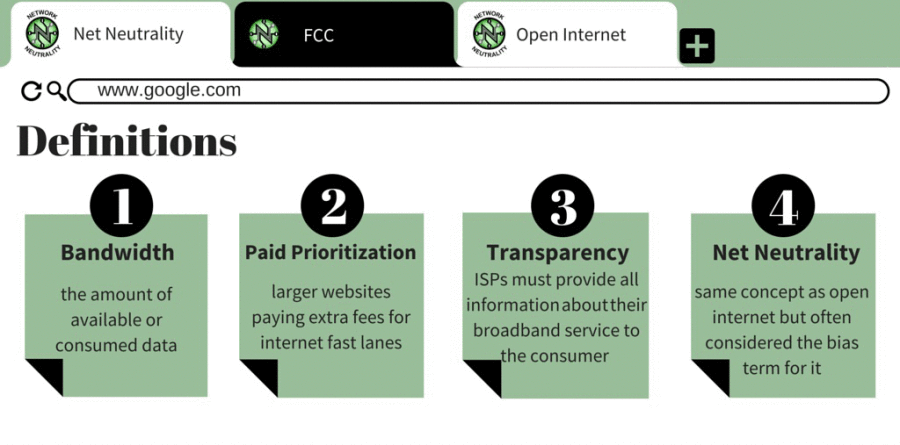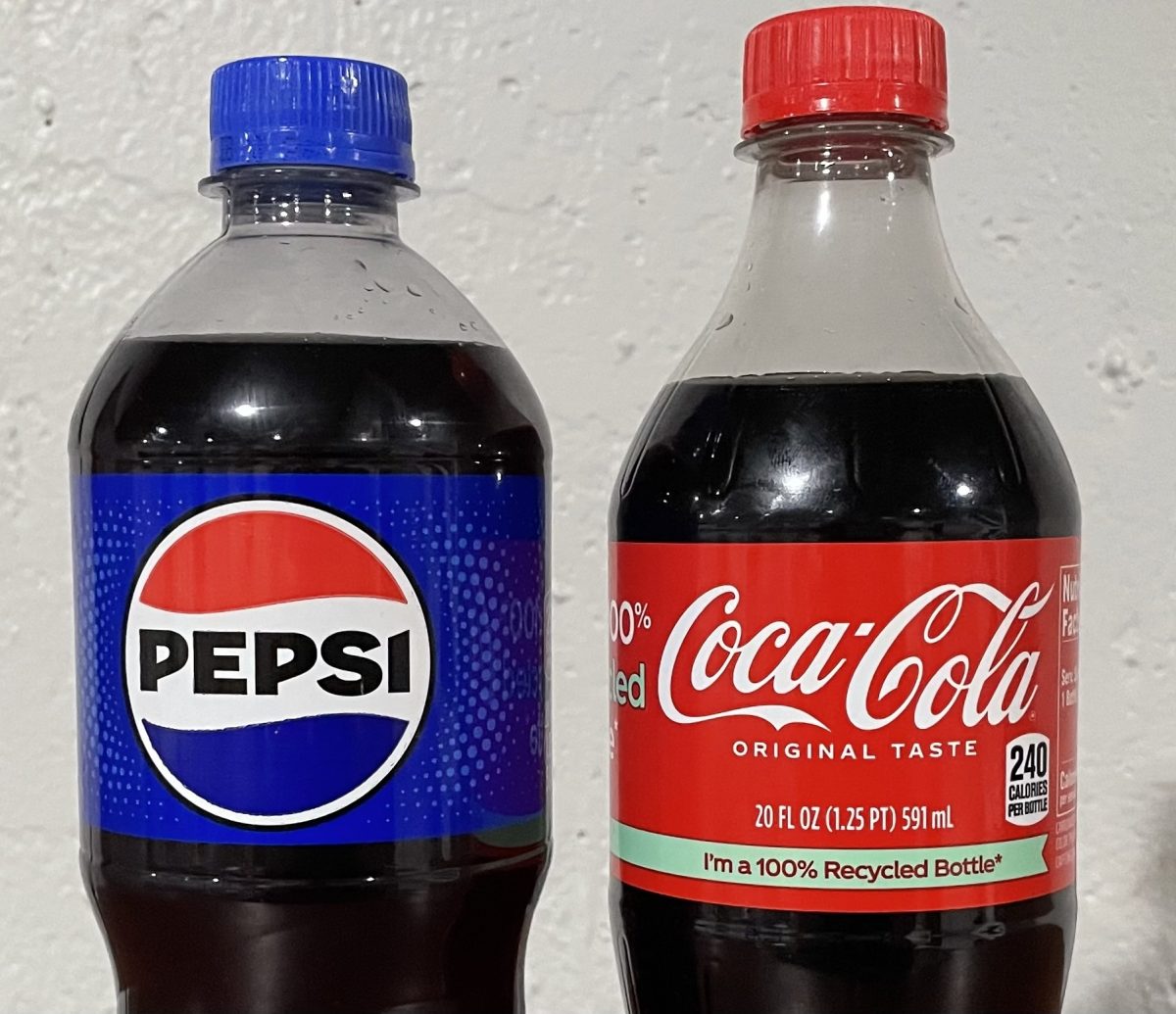Since December 2010, when the Federal Communications Commission (FCC) proposed the Open Internet Order, the question of net neutrality and open Internet grew in both popularity and confusion.
Open Internet is the idea that the web should have “free, publicly available standards” and “[treat] all traffic that flows across the network in roughly the same way,” according to the FCC.
This idea of an open Internet would mean that larger corporations and websites will no longer be able to pay for Internet “fast lanes,” and everyone will receive the same service for the same price. The free standards would regulate all websites equally and no longer allow paid prioritization. With paid prioritization eliminated, larger websites like Netflix and YouTube will no longer be able to pay an extra fee for speed to Internet service providers (ISPs). The goal of an open Internet would be to provide smaller websites with the same opportunities as those that are larger or more popular.
While the FCC is separate from the White House, many arguments were stirred up when President Obama released a statement to the public, but the decision lies in the hands of the Commission. The statement was released on Nov. 10 through video, expressing his support of Net Neutrality and urging the FCC to make a decision regarding the subject matter. His support comes from his belief in preserving net neutrality for everyone.
“Ever since the Internet was created, it has been organized around basic principles of openness, fairness, and freedom,” President Obama said. “This set of principles, the idea of net neutrality, has unleashed the power of the Internet and given innovators the chance to thrive. Abandoning these principles would threaten to end the Internet as we know it.”
In December 2010, the FCC released the Open Internet Order which was set to establish many regulations including transparency while prohibiting blocking and unreasonable discrimination. After being challenged in federal court, the United States Court of Appeals for the District of Columbia circuit affirmed the FCC’s authority to regulate the Internet; they upheld the transparency rule but vacated the latter two.
Following the action from the U.S. Court of Appeals, the Commision unveiled a rulemaking, encouraging the public to comment on “how best to protect and promote an open Internet” on May 15, 2014. The FCC planned on releasing more plans later in the year, though President Obama’s recent video brought the subject back into question.
In President Obama’s video speech, he expressed support of reclassifying Internet service under Title II of the Telecommunications Act.
“In plain English, I’m asking them to recognize that, for most Americans, the Internet has become an essential part of everyday communication and everyday life,” the president explained.
In response to his message, ISP AT&T commented that they would “expect to participate in a legal challenge” should the utility-style regulations be put into action per the president’s favoring.
Fearing a lawsuit, Federal Communications Commission chairman Tom Wheeler wants to find solid ground regarding net neutrality rules and regulations.
“We want to come out with good rules that accomplish what we need to accomplish… And we want those rules to be in place after a court decision, so we want to make sure that we’re thoughtful in the way we structure them, and thoughtful in the way we present what will ultimately be presented to a court,” Wheeler stated.
Since the major corporations, such as AT&T, are prepared to sue based on the FCC’s decision, Wheeler wants to have a strong support behind whatever rule is chosen.
While the best decision and fate of the Internet remains unclear, the fight over net neutrality is still being waged as the FCC has yet to release a decision on the regulations that will be proposed.







